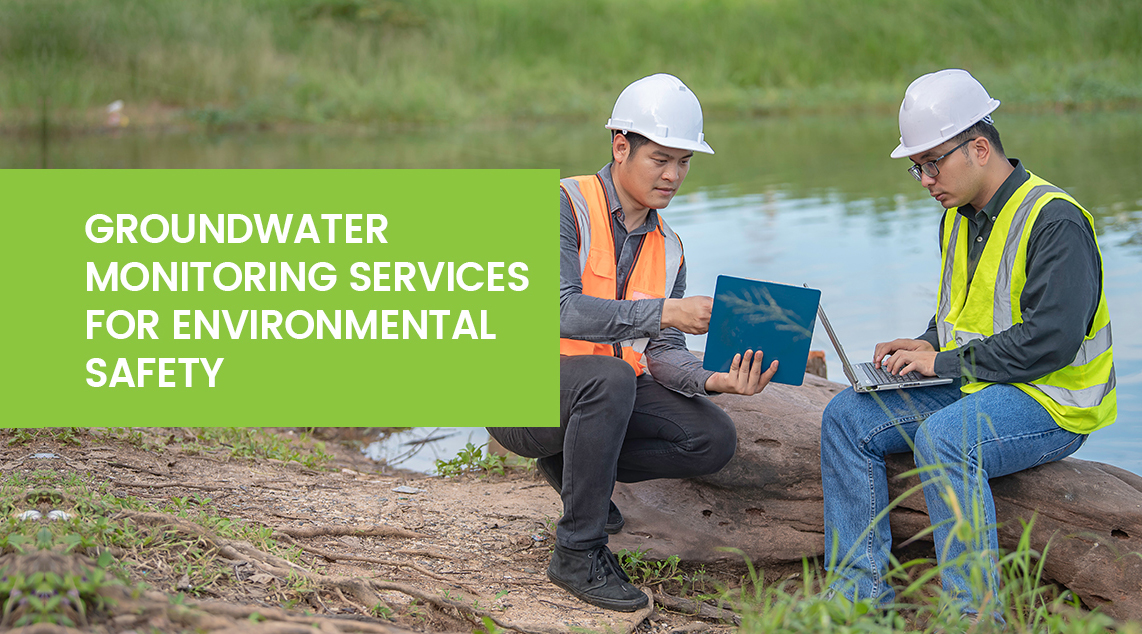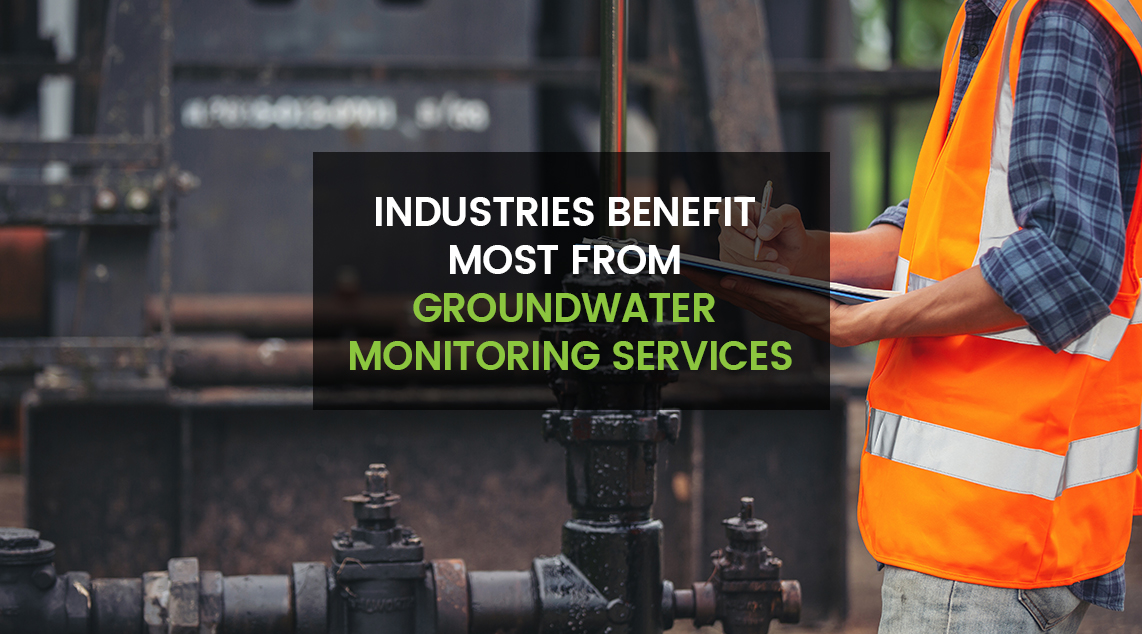
Introduction
A family in a remote town suddenly finds their drinking water tainted, causing a wave of mysterious illnesses. After weeks of confusion and escalating panic, the culprit is revealed—a leaking industrial site contaminating the groundwater. Unfortunately, stories like this are not rare. Beneath the earth’s surface, an invisible crisis can brew for years, unnoticed, until it’s too late.
Groundwater monitoring services act as the invisible guardians of our planet, protecting communities, ecosystems, and industries from potential disasters. Groundwater testing is not just about tracking water quality; it’s about securing life, preserving the environment, and ensuring future generations have access to clean water. For businesses and environmental consultants in Australia, groundwater monitoring has become an indispensable tool in maintaining environmental safety and compliance.
But what makes groundwater monitoring so essential? What role does it play in detecting contaminants, protecting industries, and safeguarding public health?
Let’s uncover these answers, delving into a topic that is as vital as the water we drink.
Secure your groundwater’s future today. Contact our experts for reliable groundwater monitoring services.
What Is Groundwater Monitoring, and Why Is It Essential for Environmental Health?
Groundwater monitoring is the process of collecting, analysing, and interpreting data from underground water sources to assess their quality and sustainability. It involves a series of tests and measurements designed to understand the physical, chemical, and biological characteristics of groundwater.
Why is this so important? For starters, groundwater accounts for about 30% of the planet’s freshwater. In Australia alone, it supports critical industries like agriculture, mining, and urban water supply. Yet, groundwater remains hidden beneath the surface, vulnerable to contamination from industrial activities, agricultural runoff, and natural pollutants.
Without effective monitoring, pollutants can seep into these underground reservoirs undetected. Once groundwater is contaminated, remediation becomes a costly and time-consuming endeavour, with far-reaching impacts on ecosystems, human health, and the economy. Groundwater monitoring services, therefore, are not just a preventative measure; they are a necessity for maintaining environmental health.
How Does Groundwater Monitoring Help Detect Contaminants?
Contamination of groundwater can occur from a myriad of sources—industrial discharges, agricultural chemicals, landfill leachate, or even natural mineral deposits. Groundwater monitoring plays a critical role in early detection, enabling timely interventions before pollutants spread further.
By analysing water samples, experts can identify harmful substances like:
- Heavy metals (e.g., arsenic, lead, mercury)
- Nutrients (e.g., nitrogen and phosphorus from fertilisers)
- Pathogens (e.g., bacteria and viruses from waste systems)
- Volatile organic compounds (VOCs) from industrial solvents
Groundwater testing involves tracking changes in water chemistry over time, allowing environmental consultants to pinpoint the source of contamination. For example, a sudden spike in nitrates may indicate agricultural runoff, while VOCs could signal industrial leakage.
Early detection is vital. If contamination is identified early, remediation strategies such as pump-and-treat systems or bioremediation can be implemented swiftly. This not only prevents environmental damage but also reduces the financial burden of cleanup operations.
What Industries Benefit Most from Groundwater Monitoring Services?

Groundwater monitoring is not confined to a single sector; its applications span across multiple industries, each with unique needs and challenges.
1. Agriculture
Farmers depend on groundwater for irrigation and livestock. Monitoring ensures that water is free from contaminants that could harm crops or enter the food chain. By detecting nutrient imbalances, groundwater testing helps optimise fertiliser use, improving yield without causing environmental harm.
2. Mining and Resource Extraction
Mining activities often risk contaminating groundwater with heavy metals and other toxins. Regular monitoring enables mining companies to comply with environmental regulations and prevent long-term ecological damage.
3. Urban Development
As cities expand, construction projects can disrupt groundwater flows, potentially introducing contaminants. Monitoring helps urban planners mitigate risks while ensuring sustainable development.
4. Industrial Operations
Manufacturers and chemical plants use groundwater monitoring to identify leaks, spills, or improper waste disposal practices. It’s a key step in maintaining compliance and preventing costly legal disputes.
5. Environmental Consulting Services
Environmental consultants in Australia and worldwide rely on groundwater monitoring as part of broader environmental impact assessments. These services guide businesses on sustainable practices while meeting regulatory standards.
Have questions about groundwater testing? Speak with our environmental consultants in Australia and get the answers you need.
What Technologies Are Used in Modern Groundwater Monitoring?
Technological advancements have revolutionised groundwater monitoring, making it more accurate, efficient, and accessible. Here’s a look at some of the key innovations:
1. Automated Sensors
Modern monitoring wells are equipped with automated sensors capable of measuring parameters like pH, temperature, conductivity, and dissolved oxygen in real time. These devices provide continuous data, reducing the need for frequent manual sampling.
2. Remote Monitoring Systems
Wireless telemetry systems allow data to be transmitted directly from monitoring sites to a central database. This technology enables environmental consultants to access real-time data, even from remote locations.
3. Isotope Analysis
By analysing isotopes, scientists can trace the origin of water and contaminants. This is particularly useful for distinguishing between natural and man-made sources of pollution.
4. Geophysical Tools
Ground-penetrating radar (GPR) and electrical resistivity imaging (ERI) are non-invasive methods used to map groundwater flow and detect subsurface anomalies.
5. Laboratory Testing
Despite advances in field technology, laboratory analysis remains indispensable. Groundwater samples are analysed for a comprehensive range of chemical, physical, and biological parameters to ensure nothing is overlooked.
How Often Should Groundwater Monitoring Be Conducted?
The frequency of groundwater monitoring depends on several factors, including:
- Industry regulations
- Local geology and hydrology
- Potential contamination risks
- Historical data trends
In high-risk areas, monthly or even continuous monitoring may be required. For lower-risk sites, quarterly or annual testing may suffice. Consistency is key; regular monitoring builds a robust database that can reveal trends and detect anomalies early.
Environmental consultants in Australia often recommend creating a customised monitoring schedule based on site-specific needs. This approach ensures compliance while optimising resource allocation.
Why Choose Expert Services for Groundwater Monitoring?
Groundwater monitoring is a complex process that demands specialised knowledge, cutting-edge technology, and a meticulous approach. Entrusting this task to professional environmental consultants ensures accurate results and actionable insights.
Here’s what to look for when seeking groundwater monitoring services:
- Experience and expertise: Look for a provider with a proven track record in your industry.
- Technological capabilities: Ensure they use modern tools and techniques for accurate assessments.
- Regulatory knowledge: Choose a team familiar with Australian environmental regulations to ensure compliance.
- Customised solutions: Opt for services tailored to your specific site and needs.
Conclusion
Groundwater is a hidden lifeline, sustaining industries, ecosystems, and communities. However, it is vulnerable to contamination, and the consequences of neglecting its monitoring can be dire. That is why groundwater monitoring services from Integrated Environmental are more than just a technical process—they are a commitment to protecting environmental safety, public health, and the future of our planet.
From early detection of contaminants to guiding sustainable practices across industries, groundwater testing serves as the foundation for responsible water management. If you’re in agriculture, mining, or urban planning, investing in groundwater monitoring is investing in long-term resilience.
Protect your site, comply with regulations, and preserve our environment. Explore our environmental consulting services now.
